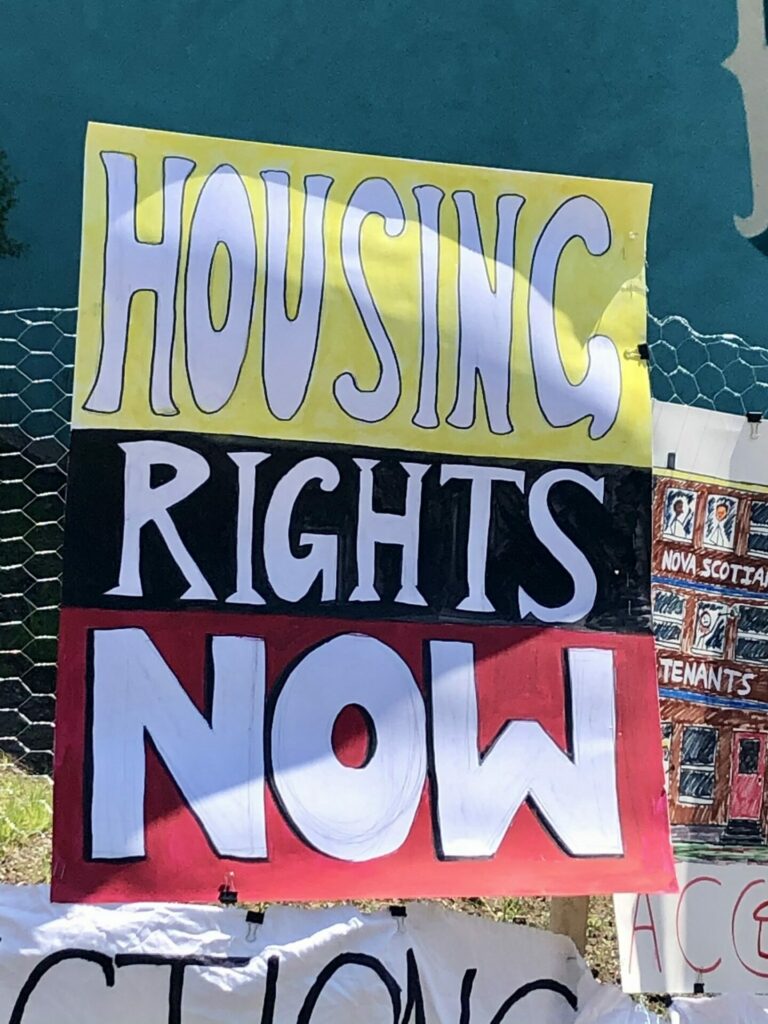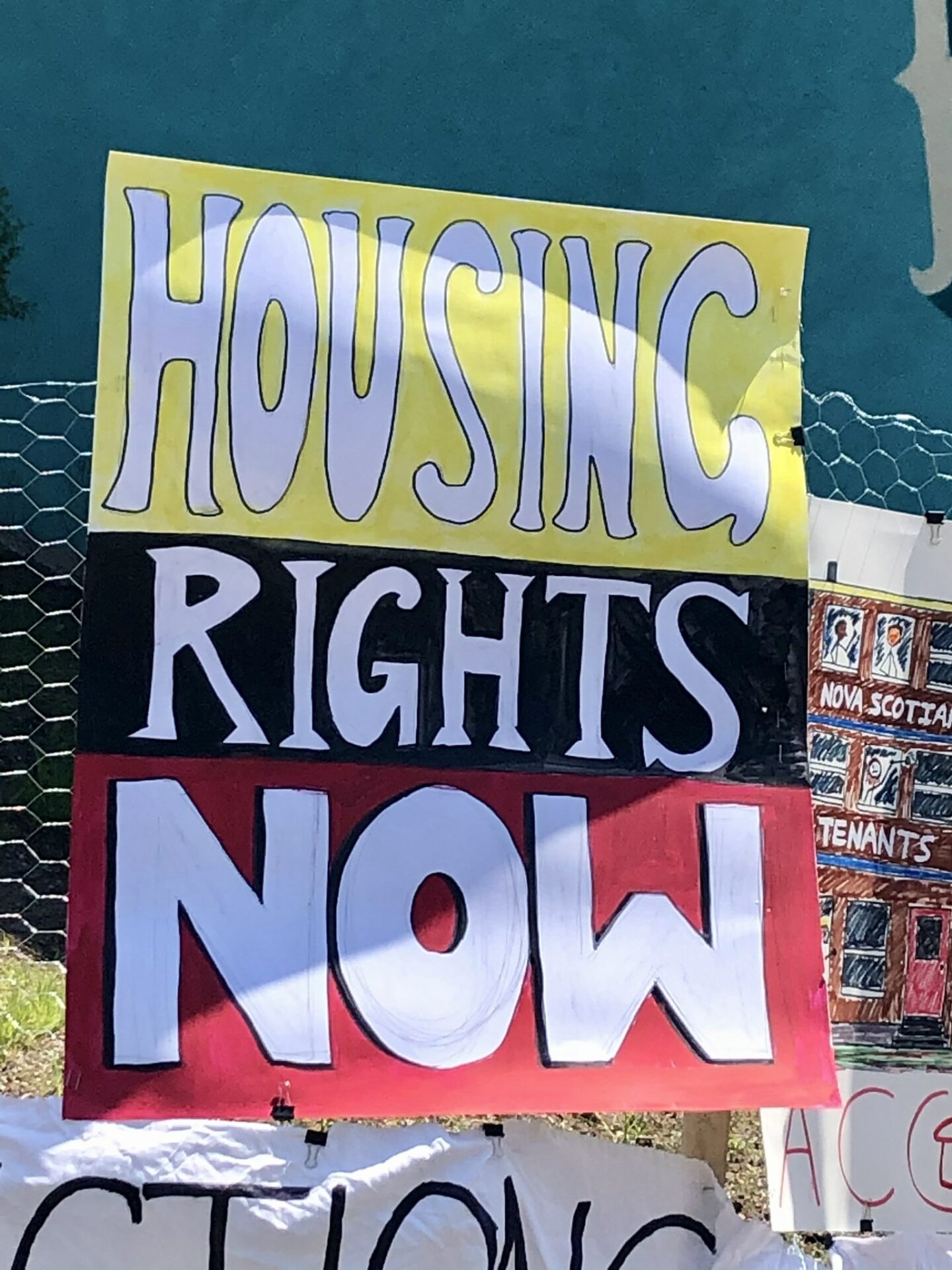Nova Scotia ACORN’s open letter on Landlord Licensing in HRM
Posted September 14, 2022

Sept 8th 2022
Dear Councilors,
We are writing to you today regarding Nova Scotia ACORN’s License Landlord Now campaign, which has been ongoing in the HRM for years. At an upcoming HRM council meeting, a report from City Staff will come back with recommendations on landlord licensing and or registration. ACORN’s membership of low-to-moderate income tenants are eager to ensure that HRM councillors like yourself are aware of the benefits that a strong licensing or registration system with per-unit-fees can have.
As a membership organisation of low-to-moderate income members, the campaigns our members vote to work on always tackle systemic issues that are pervasive throughout the community. Substandard conditions in HRM apartments are certainly that. Pests, shoddy repairs, and water and mould issues are just some of the issues that HRM tenants too often have to deal with. This should not be the case.
Licensing or registration, if done properly, would enable the HRM’s bylaw department to proactively enforce M-200 Respecting Standards for Residential Tenancies bylaw which sets out base health and safety standards that all apartments must meet.
As it stands the M-200 bylaw is under-enforced for a variety of reasons.
First, it is complaint based, meaning that tenants need to report violations to the city in order to get any action from the HRM. Putting the onus on tenants to complain is problematic because the vast majority of tenants are not aware the bylaw exists or how to file a complaint. Worse, even when tenants are informed of the M-200 and how to file a complaint, tenants are reluctant to make the complaint out of fear of reprisal from the landlord. Landlord Licensing would make the enforcement proactive and get the bylaw officers empowered and resourced so that they can seek out problems in the building, taking the onus away from tenants.
Another weakness is that even when a tenant does file complaints, and goes through the relatively onerous process of working with bylaw to get the problem resolved, the problem often does not get resolved. The current enforcement protocol of the HRM lacks repercussions against scofflaw landlords who violate the M-200 bylaw. Landlord licensing or registration would add teeth to the enforcement of the M-200 bylaw, giving HRM bylaw officers more tools to ensure that tenants have healthy homes.
An issue that ACORN has with the versions of landlord registration that we have been shown is the lack of a nominal per-unit fee.
The lack of nominal per-unit licensing or registration fee charged to landlords puts the long-term viability of the program at risk. Funding the program solely through the tax base
leaves the program highly vulnerable to funding cuts and leaves tenants fighting for money for the program on an annual basis.
By charging a nominal per-unit-fee of a dollar a month (RentSafeTO in Toronto charged $0.95 per month per unit this year), the HRM would be able to have a dedicated revenue base for the M-200 bylaw enforcement.
The arguments against per-units fees, while raised loudly and hyperbolically by landlord lobbyists, are thin. The 95 cents per month charged in Toronto is not the reason rents are going up. Landlords will raise rents to whatever levels the laws will allow and the market will bear.
For a 60-unit apartment building, the total fee would be $57.30 a month. The fact is that $57.30 dollars a month charged is relatively inconsequential to a one building owner. For the city, on the other hand, it is sound financial management because it helps recoup revenue lost through enforcing the M-200. Taxpayers should not have to pay the full cost for ensuring that landlords comply with regional health and safety standards; landlords should do that.
We are looking for councillors to put motions forth to amend any landlord licensing or registration program that does not have dedicated funding for bylaw enforcement through a nominal per-unit fee. If that is you, please let us know.
Over the years, the HRM council has gone back and forth about licensing, releasing reports and doing research. This shows a willingness to admit the current system of enforcement is lacking, but more needs to be done. The time for real action and implementation is now.
If you are interested in helping with passing the best possible landlord licensing or registration program, please let us know by responding to this letter. ACORN tenant reps living in or near your ward are eager to communicate and work with you to ensure that the HRM enacts the best landlord licensing or registration program possible.
Thank you for your time,
Hannah Wood, Lisa Hayhurst, and Pat Donovan – NS ACORN

